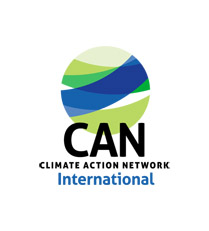No oasis for climate in Doha desert
8 December 2012

The UN climate talks failed to deliver increased cuts to carbon pollution, nor did they provide any credible pathway to $100 billion per year in finance by 2020 to help the poorest countries deal with climate change, according to the 700 NGOs who are members of Climate Action Network-International (CAN-I).
Two weeks ago, just prior to the start of these negotiations, numerous credible reports were published by an array of well respected scientists, economists and climate change experts, all with essentially the same conclusion – we are currently on an unsustainable path which virtually guarantees the world will be faced with catastrophic effects from climate change, according to Greenpeace International executive director, Kumi Naidoo.
“Two weeks of negotiations have not altered that path and that politicians need to reflect the consensus around climate change through funds, targets and effective action."
WWF head of delegation, Tasneem Essop, said Doha was supposed to be an important element in setting up for a fair, ambitious and binding deal in 2015 and therefore needed to rebuild trust and instill equity.
“These talks have failed the climate and they have failed developing nations,” Essop said. “The Doha decision has delivered no real cuts in emissions, it has delivered no concrete finance, and it has not delivered on equity.”
Governments have delivered a very vague outcome that might lead to increased ambition but only if the politics shift to working for the people, our future, and not the polluters.
In particular, countries including the US, who have continually blocked progress in the talks, need to fundamentally change their positions in line with their obligation to lead on the solution to this crisis that they created.
Tim Gore, International Climate Change Policy Advisor for Oxfam, said Doha had done nothing to guarantee that public climate finance would go up next year, not down.
“Developing countrieshave come here in good faith and have been forced to accept vague words and no numbers,” Gore said. “It's a betrayal.”
Wael Hmaidan, director of CAN-I, said that ministers needed to go back to their capitals and work hard to put concrete proposals on the table for the next talks so that progress could be made towards to secure a fair, ambitious, and binding deal in 2015.
“The path forward is actually quite clear: we have the technology and know-how to reduce dangerous carbon pollution, protect vulnerable communities, and grow sustainable, resilient, economies.”
“But we also need people in all regions of the world to demand leadership from their governments on climate change – just like the new youth movement in the Arab region has done.”
The Doha Decision:
- An extraordinarily weak outcome on climate finance which fails to put any money on the table or to ensure a pathway to the $100 billion a year by 2020 target. The decision asks for submissions from governments on long term finance pathways, calls for public funds for adaptation but does not mention a figure, and encourages developed countries to maintain funding at existing levels dependent on their economies.
- An eight year second commitment period of the Kyoto Protocol with loopholes that allow carry over, use and trading of hot air
- A call – though not an official ambition ratchet mechanism – for Kyoto Protocol countries to review their emissions reduction target inline with the 25-40% range by 2014 at the latest. While it could have been stronger, the decision reinforces clear moral obligation for countries to increase their emission reduction targets prior to 2020 and provides opportunities for them to do so
- An agreed work program on loss and damage to help victims of climate change will start immediately anda decision “to establish institutional arrangement, such as an international mechanism, at COP19”
- Developed countries failed to agree a way to account for their carbon in a comparable way
Contacts
Climate Action Network (CAN) is a global network of over 700 NGOs working to promote government and individual action to limit human-induced climate change to ecologically sustainable levels.
For more information, please contact CAN International Communications Coordinator Ria Voorhaar, email: rvoorhaar@climatenetwork.org, local mobile: +974 33 38 6907.



